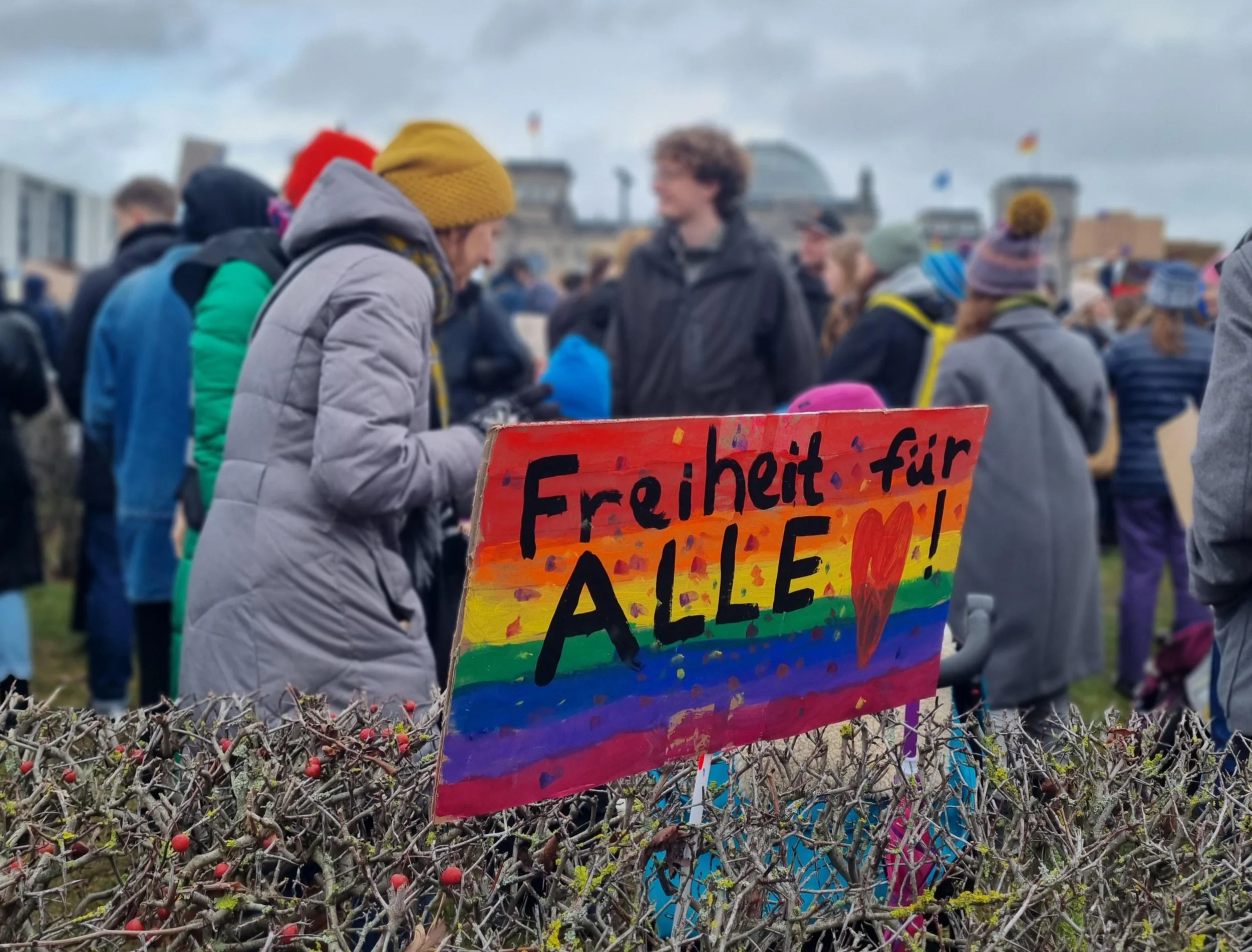The problem is right-wing extremism, not Islam or migration
In January 2024, German-speaking media focused on one topic in particular, revelations made by the media organization, CORRECTIV.
(CORRECTIV is a media company oriented towards the common good that strengthens democracy. With a multi-award-winning editorial team, they stand for investigative journalism. They trigger public debates, work with citizens on their research, and promote society with their educational programs.)
Journalists from this organization reported on a secret meeting of right-wing extremists to discuss racist deportation plans to remove people, with a history of immigration, from Germany. Yet, instead of talking about the threat to Muslim people and the millions of people who have migrated to Germany, media outlets and talk shows have focused on framing migration and Islam as a societal problem.
What are the deportation plans right-wing extremists want to carry out in Germany?
Journalists from media organization CORRECTIV revealed that right-wing extremists, including politicians from the party Alternative für Deutschland (AfD), secretly met with members of the party WerteUnion (WU) and businesspeople. They discussed how to deport millions of people from Germany, specifically
people with a history of migration or people who are perceived as such. In Germany, the latter applies in particular to people who are read as Muslim;
Black people and people of colour
people who, according to the group that met in Potsdam, are “not sufficiently assimilated” and are often constructed as “Muslim problem groups”.
Anti-Muslim racism is an important component of right-wing extremism in Germany
The far right uses cultural racism to label Islam as “foreign” and “dangerous”. This strategy aims to legitimate the exclusion of Muslim people and migrants (constructed as the bearers of Islam) from Germany. Anti-Muslim and anti-migration discourses are therefore closely interwoven in Germany. Anti-Muslim positions are central to the AfD’s political strategy.
The revelations of CORRECTIV led to major protests against right-wing extremism.
Why the German media coverage is troubling
When talking about the deportation plans, journalists often reshare right-wing extremist words, ideas and frames. They quote AfD politicians without sufficiently providing context, use their quotes as headlines and invite them to talk shows. Those who are particularly threatened by the deportation plans (25% of the population from a so-called migration background) are not sufficiently represented in the media. The result is that instead of focusing on the danger right-wing extremism poses for a democratic society, German-speaking media more often highlight migration and Islam as the supposed problem, reproducing or reinforcing racist and anti-Muslim stereotypes.
Even media organizations with a particularly high reach in Germany tend to reproduce right-wing extremist frames. For instance, a social media post by tagesschau, the Instagram account of the news program Tagesschau (Daily News) that is broadcast several times a day on the first channel and on several other channels on German TV. The post uses the word “master plan” (no inverted commas in the original post) to describe the forced removal of Muslim people and millions of others who do not fit into the right-wing extremist world view.
The post also reproduces the term “remigration” (in inverted commas this time). This term is a euphemism used by right-wing extremists to paraphrase mass deportation and is closely linked to anti-Muslim racism in German discourses. This becomes particularly clear in the comment section, where users insult Muslim people and demand their removal from Germany.
An article of the Neue Züricher Zeitung re-uses the term "remigration" to argue for the deportation of illegalized migrants. This contributes to the normalization of the extremist term and trivializes the removal of people. The deportation plans discussed in November 2023 are disturbingly close to those discussed under National Socialism. During a live interview, a politician from the AfD party even repeats a slogan that reaches back to National Socialist propaganda.
Tips for anti-discriminatory journalism on right-wing extremism
Neue deutsche Medienmacher*innen suggests five tips for anti-discriminatory journalism:
No word for word interviews: The AfD party can be reported on, and its racist ideology exposed, without simply providing the party with a platform to share their extreme views in interviews and articles. The AfD is not a democratic party like any other and should not be treated as such in reporting. Allowing them to set the agenda is detrimental to democracy and has no added value in terms of information.
Give as many people as possible access to information: The CORRECTIV research has been translated into five languages so that more people have access to the important content. The text can also be read aloud. A good example of how inclusive reporting can be made available for all.
No right-wing slogans in the headline: The research achieved a great deal of attention, even without reproducing right-wing extremist terminology in the headline or adopting right-wing framings without comment.
In-depth research takes precedence over speed: The AfD spreads misinformation and conspiracy theories. It is the job of journalists to correct this misinformation, refute it and clearly name anti-democratic or racist ideologies. This is why reporting on right-wing extremists needs categorization and expertise, beyond quotes and sound bites.
Let those affected have their say: Instead of discussing migration and Islam in every program, many more people with the lived experience of immigration and Muslim people must have their say, as they are affected by the deportation plans of right-wing extremists. They must appear to make the threat that a radical right-wing party poses to a very large part of the population visible and audible to the German public.



